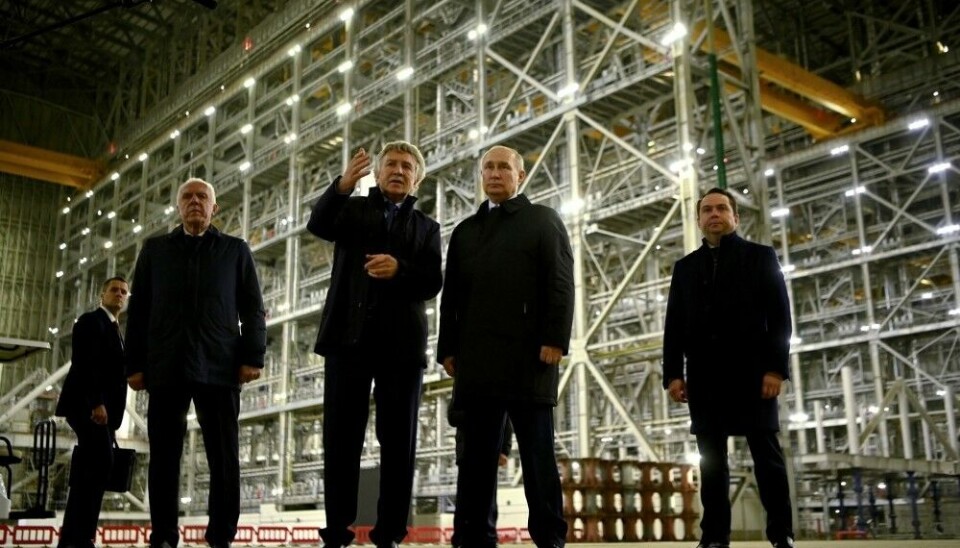
Americans attack Russian Arctic: new sanctions take aim at LNG and mining
The U.S Treasury adds a significant number of Russian individuals and companies to its sanctions list. It means trouble for the developers of liquified natural gas and new mines in the Russian Arctic.
Russian natural gas company Novatek and its leader Leonid Mikhelson is among the ones that most likely is tearing their hair in despair over the new U.S anti-war measures.
Novatek is a key target in the updated sanctions list that was announced on the 14th of September. Several subsidiary units of the company is on the list. The same goes for a number of the companies that supply Novatek with equipment, technology and manpower.
On the list are also the company’s two brand new floating storage units. The 400 meter long units Saam FSU and Koryak FSU this summer arrived in their destinations in the Ura Guba, Kola Peninsula, and Bechevinskaya Bay in Kamchatka. They will enable Novatek to boost shipments of LNG to foreign markets.
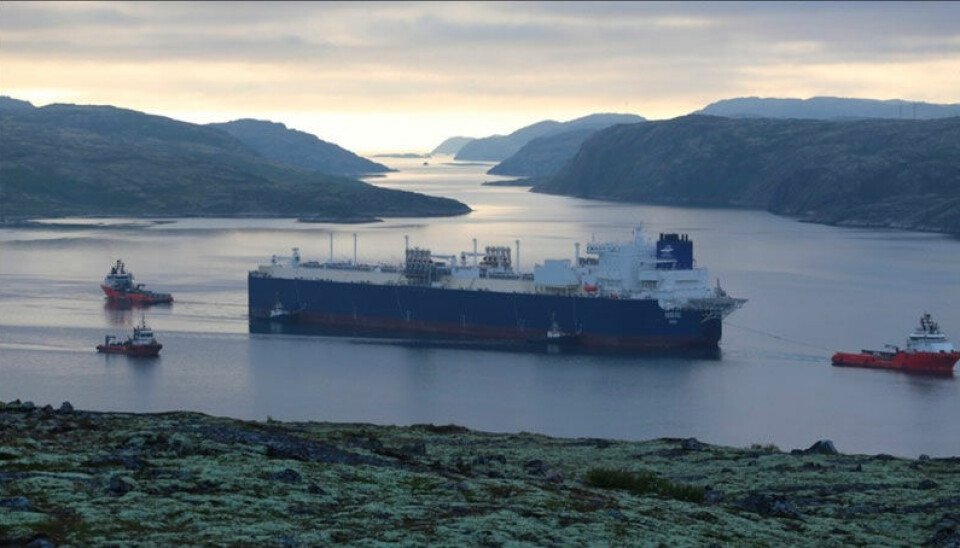
Along with the two Panama-registered floating storage units is operating company Arkticheskaya Perevalka and its CEO Yuri Safyanov.
Safyanov is based in Murmansk. His company was established in 2019 to manage Novatek’s Arctic logistics.
The Americans are also aiming at several of the key companies assisting Novatek in building platforms and LNG production units. Among them is the JSC Energies, a company formerly known as Teknip Rus AO. It was initially a joint venture of French company Technip and Russia’s NIPIGAZ, but crashed following the Frenchmen’s exit in 2022.
On the list are also NOVA Energies and Green Energy Solutions Project Management Services. Both companies were contracted by Novatek for the Arctic LNG 2 following the Technip’s and Saipem’s exit from Russia. The latter is based in the United Arab Emirates.
Also Veles-Stroy is included in the updated sanctions list. The company has over many years been a crucial partner for Novatek’s LNG projects, first the Yamal LNG and then the Arctic LNG 2.
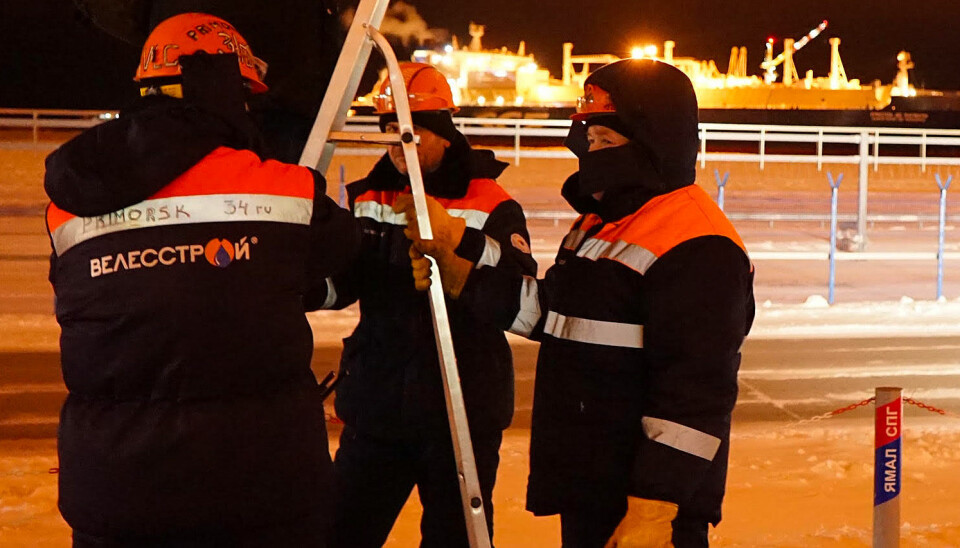
The net is now tightening around Leonid Mikhelson and his Novatek. The man who for the past decades has been a close ally of Vladimir Putin and made billions on natural gas from the Arctic will now face additional troubles with pushing ahead with new energy projects.
Mikhelson is today sanctioned by the UK and is included in the Countering America’s Adversaries Through Sanctions Act. He is not sanctioned by the EU.
The EU remains a major buyer of Russian LNG and imports have increased significantly over the past two years.
Despite the exit from Russia of Novatek’s key international partners, the company has managed to proceed with the development of the Arctic LNG 2. In mid-August this year, a 640,000 ton heavy production unit docked in the Utrenneye port in far northern Gydan peninsula after a more than 2,000 km towing operation from Murmansk. Thanks to supplies from Chinese manufacturers, the construction of a second unit is proceeding at the company’s yard in Belokamenka.
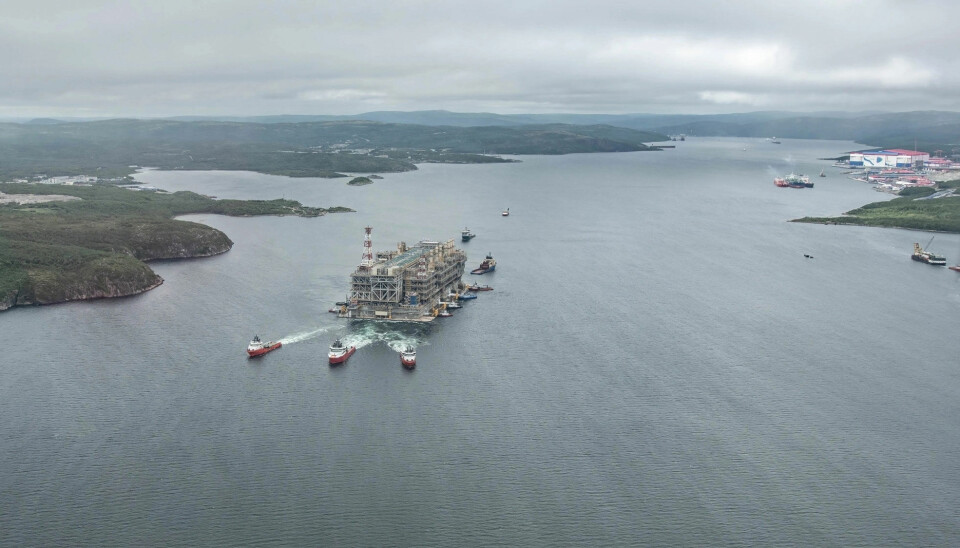
In addition to Novatek and the Russian LNG industry, the new U.S sanctions take aim at Russian Arctic mining projects.
On the list are several of the companies that today push ahead with new extracting industries in some of the most vulnerable parts of the planet.
Among them are several of the key assets owned by business tycoon Roman Trotsenko. Over several years, Trotsenko has invested major sums in Arctic coal mines, in the remote Taymyr Peninsula, as well as in Vorkuta.
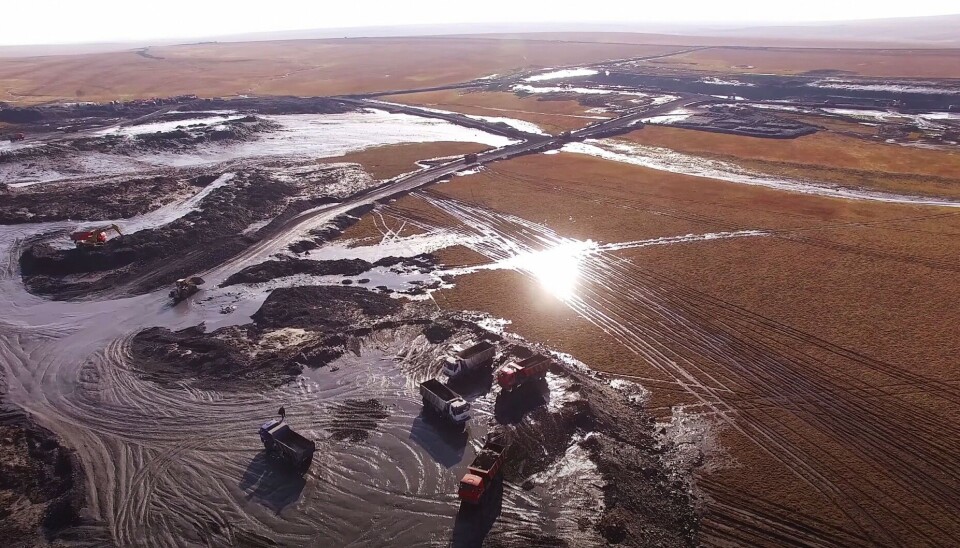
Trotsenko is the man behind Severnaya Zvezda, the company that operates the new Syradasayskoye project near Dikson on Kara Sea coast.
A new major sea terminal has been built in the area and the company looks set to soon start exporting large volumes of coal.
The new sanctions will Trotsenko’s Arctic operations far harder. The U.S list includes Trotsenko’s United Arctic Company, as well as 17 connecting companies and also Vorkutaugol.
Like with Leonid Mikhelson’s Novatek, Roman Trotsenko and his companies will now increasingly have to lean on Chinese deliveries of technology and goods. They will also look to far away markets in Asia for the selling of their goods.















